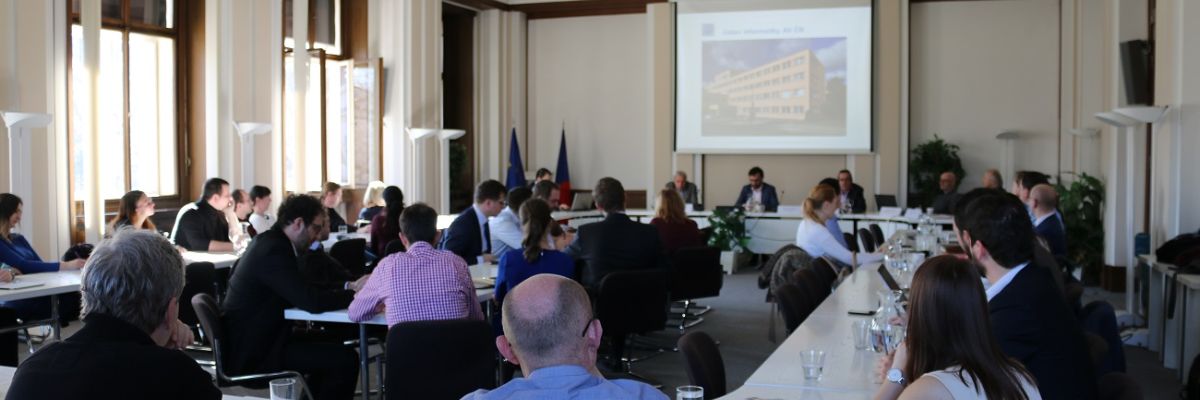
CAS helps the Ministry of Finance find ways to work with big data
CAS helps the Ministry of Finance find ways to work with big data
Wed Mar 06 15:11:55 CET 2019
More than year-long expert cooperation between the Czech Academy of Sciences and the Ministry of Finance of the Czech Republic, significantly strengthened by the signing of Memorandum of Understanding at the end of 2018, is starting to bear fruit. At a mutual workshop in the last week of February, a team from the Institute of Computer Science of the CAS presented first results of data analysis based on selected accounting ratios provided by the Ministry.
“We started opening the data of the Ministry of Finance in 2014. Since then, we have known that the main problem is not the question how to open the data to the public but rather how to work with the data after that,” emphasised Deputy Minister Tomáš Vyhnánek at the beginning of the workshop. Therefore, a key question that the economists had asked was how to work with complex data sets and how to obtain feedback for better storing and checking of the data.
No data are without flaws
Scientific methods, processes, and algorithms for extraction of knowledge from data are used in so-called Data Science, which is being developed as a new interdisciplinary direction of computer science research in the Institute of Computer Science. “These methods allow for both gaining relevant results from the data and detecting, removing, and replacing errors in the data. And no data are without flaws,” cautioned Emil Pelikán, director of the Institute of Computer Science.
The work of the computer scientists analysing the Ministry’s data sets therefore consisted mainly of understanding and organising the data, as well as their repeated checking and transformation. “Even though the data, namely the results of elementary schools’ financial management from 2012 to 2017, have been prepared responsibly, certain corrections were necessary,” stated Marek Malý from the Institute of Computer Science, who was in charge of preparation of the data. “We have learned much, and we understand this as a pilot project for use of data in a more complex evaluation, either data analysis of other subjects by our team or other interdisciplinary cooperation,” added Marek Malý.
Statistic models answer specific practical questions
Detailed statistical analysis of accounting data yields plenty of information which can be used in economic, political, or managerial decisions or, for example, in dynamic monitoring of quality of financing of Czech elementary school system.
The analysis is not easy, though, because the statistical models need to be constructed specifically. “We can also add more explanatory variables, through which questions of practical as well as structural importance – such as impact of urbanisation on property indicator – can be tested,” elaborated Marek Brabec.
Results of analyses by computer experts from the Academy of Sciences will now be processed by economists in the Ministry of Finance. Cooperation will continue both under one of the programmes of Strategy AV21 and under the Memorandum of Understanding between the Ministry of Finance of the Czech Republic and the Czech Academy of Sciences.
“I am happy that political phrases have been transformed into specific results and that experts’ efforts meet with real needs of the Ministry’s officials,” said CAS Vice Chair Jan Řídký.
Original Czech text prepared by: Markéta Růžičková, Department of Media Communication of the Head Office of the CAS
Photo: Ministry of Finance of the Czech Republic
